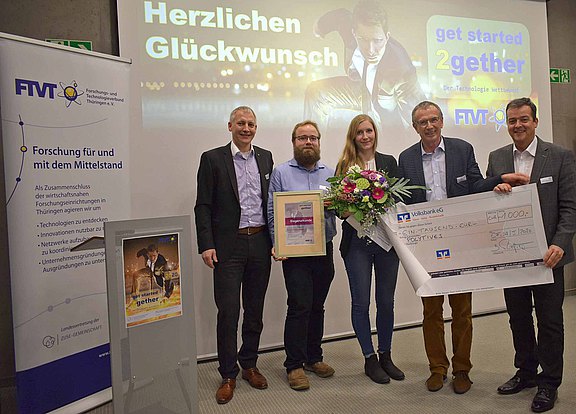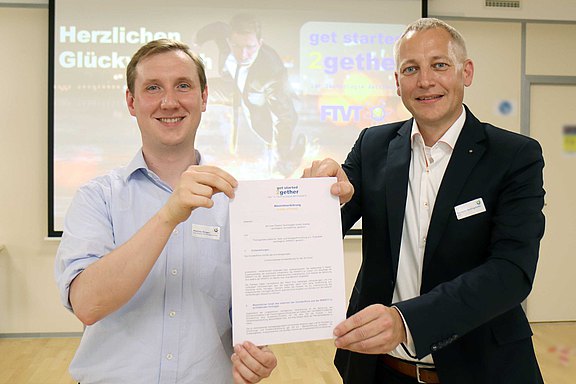Support for start-ups
Since spring 2019, Thuringia has been offering an unprecedented package for technology-oriented start-ups: "Get started 2gether" is the name of the competition launched by the Forschungs- und Technologieverbund Thüringen (FTVT) and the Thuringian Ministry of Economics, Science and Digital Society. Successful participants in the start-up competition can use the complete infrastructure of a research institution for six months and receive all-round support from experienced scientists.
The TITK has been involved from the beginning and helped launch this technology competition.
Already at the first stage in May 2019, the jury selected two founding teams for cooperation with the TITK, including the winner.
Thanks to funding from the ministry, both start-ups were able to conclude cooperation agreements with the TITK and thus gained access to our know-how, our expertise and our long-standing networks. With the diverse possibilities on site in Rudolstadt, new processes can be accompanied through an upscaling from laboratory to pilot plant scale all the way to series production. It is precisely these framework conditions that the TITK also provides to technology-oriented start-ups in Thuringia. This makes the start-up phase noticeably easier for young companies. Last but not least, such an increase in certainty can significantly raise the interest of potential investors.
The second and third stages of the competition also resulted in new partnerships for the TITK. Among others, with Polytives GmbH from Jena, which won the Innovation Award of Central Germany in summer 2020, or with The Center for Haptic Audio Interaction Research from Weimar, which won the Best Demo Award at the NIME2020 conference in Birmingham.
As a result of the fourth edition of "Get started 2gether", TITK was able to seal a cooperation with another successful start-up: the Ilmenau-based company LeanPlastics Technologies.
The starting point for the research cooperation with TITK is the project "Functionalized plastic powders for 3D printing". This involves a process for pulverizing thermoplastics that makes additive manufacturing suitable for mass production. Together with TITK, the main aim is to identify and test additives for pulverization processes in order to achieve, for example, higher thermal or electrical conductivity as well as flame retardancy or improved rigidity in additive manufacturing.

